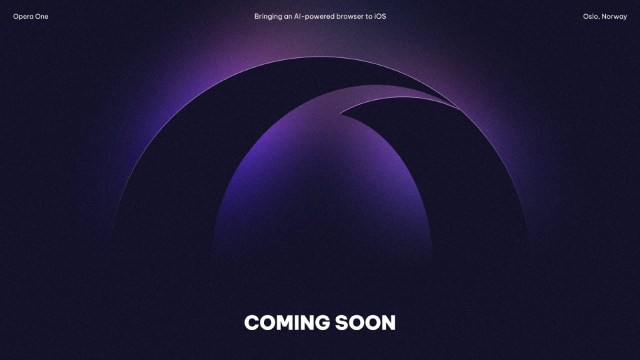Opera


Opera has introduced a significant development in the evolution of web browsers by launching Browser Operator, an integrated AI agent designed to perform web tasks for users. Unlike typical AI integrations that rely on generating content from prompts, this innovation leans into the concept of “agentic AI,” where artificial intelligence actively completes tasks rather than simply assisting with information generation. The Norwegian company aims to transform the user’s experience by automating repetitive actions, allowing individuals to focus on more meaningful work while their browser handles the rest.
The AI agent, which operates natively within the Opera browser, processes user instructions given in natural language. Leveraging local computing resources, Browser Operator completes actions directly within the browser environment, using Opera’s proprietary AI Composer Engine. Notably, it remains interactive and user-friendly — pausing to request confirmation when performing sensitive tasks such as filling out forms or placing online orders. This ensures users retain control and transparency throughout the automation process.
Many of the daily tasks performed in browsers, like comparing prices or tracking social media activity, are highly repetitive. Experts highlight that Browser Operator could serve as a digital productivity assistant, relieving users of routine searches and tasks. This not only enhances efficiency but also empowers users to make decisions faster by presenting condensed findings in a fraction of the time. The potential extends to a broad range of applications — from vacation planning to managing tax deadlines — offering a compelling utility for everyday users.
What sets Browser Operator apart from other AI-enabled browsers is its native integration. While competitors may use cloud-based solutions that require sending screenshots to AI models, Opera’s approach works through the browser’s Document Object Model (DOM), providing a more seamless and responsive user experience. The DOM-based interaction allows the agent to directly manipulate web page elements, improving both speed and performance while maintaining a high degree of privacy since all operations are performed locally.
This local-first model also has practical advantages. For example, users won’t face frequent interruptions from captchas and login issues that can arise when accessing services through external AI agents like OpenAI’s Operator. Because the AI operates within the user’s own browser and network environment, it maintains continuity with their logged-in sessions and trusted websites, streamlining the automation process further.
Despite Opera’s relatively small market share compared to dominant players like Chrome and Edge, this innovation could be a key differentiator. By focusing on smart browser enhancements while others treat their browsers as mere utilities, Opera has the opportunity to shift perceptions and gain traction among tech-savvy users. Analysts note that success will depend heavily on marketing, influencer adoption, and the ability to reach a critical mass of users who find the feature compelling.
Even so, the broader industry history suggests AI innovation alone may not immediately upend market dominance. For instance, Microsoft’s push to revitalize Bing with AI tools drew attention but failed to shift its share significantly. Likewise, downloading a new browser remains a higher barrier to entry than switching search engines, making mass adoption of Browser Operator uncertain in the short term.
Nevertheless, experts believe AI agents like Browser Operator represent the beginning of a larger shift in technology. As users seek more personalized and efficient digital experiences, agentic AI is likely to become a staple in browsers, apps, and websites across the board. These tools have the potential to redefine how we interact with the internet — not just as consumers of information, but as directors of intelligent assistants that handle the heavy lifting behind the scenes.
Opera’s move signals a clear ambition to redefine the browser’s role in our daily digital lives. By embedding AI into the core functionality of the browser, they demonstrate a vision of the future where web tools not only display content but actively collaborate with users. If this approach gains traction, it could mark a pivotal step in the evolution of how we use — and rely on — AI in everyday internet experiences.